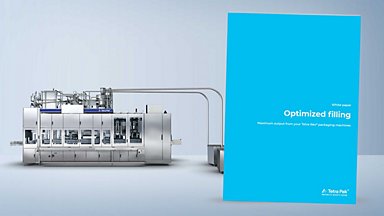Reducing Food Waste Through Investments in Sustainable, Recycling Practices and Cross-Sector Partnerships
By Marcelo Piva, Sustainability Director, Middle East and Africa .
Awareness of the need to reduce food loss and waste has risen among both consumers and retailers, but the facts remain bleak. Globally, the number of people affected by hunger has been rising since 2014, while tonnes of edible food are lost or wasted daily. Food waste is categorized as either lost or wasted, based on where the wastage occurs: Food ‘loss’ occurs before the food reaches the consumer, as a result of issues in the production, storage, processing, and distribution phases. Food ‘waste’ refers to food that is fit for consumption, but consciously discarded at the retail or consumption phases.
According to United Nations figures, globally, around 13 per cent of food produced is lost between harvest and retail, while an estimated 17 per cent of total global food production is wasted in households, in the food service and in retail all together. The Food and Agriculture Organization of the United Nations (FAO) estimates that approximately 1.6 billion metric tonnes of food are wasted every year, of which 1.3 billion tonnes comprise edible food items, parts, or products.
In the food and beverage industry, businesses are becoming increasingly aware of their environmental footprint, and that food waste is a big part of it. One quarter of the emissions from food production ends up as wastage either from supply chain losses or consumers. It’s clear that to reduce emissions, we need to prevent food waste, and companies across the sector are adopting strategies to do so.
In food manufacturing, this requires implementing more sustainable practices across production and the entire supply chain.
Minimizing environmental impact through recyclability
For processes where wastage cannot be avoided, manufacturers are looking at recycling or composting to help mitigate the environmental impact. From an environmental perspective, recycling and composting help divert waste from landfills, reducing greenhouse gas emissions and conserving natural resources. Reducing the usage of raw material and increasing the amount of recycled content is also a priority on the agenda for food manufacturers.
Tetra Pak is working to increase the renewable content in its aseptic packaging, for example, by replacing the aluminium foil with a renewable, fiber-based alternative which also increases recyclability, thereby offering manufactures an opportunity to reduce waste in their production cycle. Collaboration is key throughout the value chain to develop and implement sustainable and innovative initiatives. Tetra Pak aims to lead this change and has developed partnerships in the region to identify focus areas and develop solutions to support waste-reduction and recycling efforts.
Our strategic collaboration with Obeikan Paper Industries (OPI) and Saudi Top Plastics (STP) in Saudi Arabia began in 2017. Tetra Pak’s joint investments in these recycling lines for carton packages were the first-ever of their kind, across the entire Middle East region.
By creating a fully integrated recycling process, Tetra Pak and its partners ensure that all elements of carton packages (paperboard, polyethylene and Aluminium) are efficiently recycled, contributing to the development of a robust circular economy in Saudi Arabia. This recycling solution ensures that the collected post-consumer carton packages are recycled and repurposed, reducing waste and promoting resource sustainability, while minimizing environmental impact and supporting the country’s sustainability goals by turning waste into valuable items.
In efforts to amplify and encourage best environment practices on a wider scale, Tetra Pak has also joined the Packaging Working Group, under the Federation of Saudi Chambers in Saudi Arabia, and proactively signed a Memorandum of Understanding (MoU) with the National Centre for Waste Management (MWAN). This collaboration aims to develop and enhance waste management regulations throughout the Kingdom, with a particular emphasis on Extended Producer Responsibility (EPR).
As a member of the Steering Committee of the Packaging Working Group, which has evolved into a National Committee (NCPC), Tetra Pak plays a pivotal role in shaping industry standards and practices, thus increasing public-private partnerships. This approach encourages companies to create more sustainable packaging solutions and supports the development of efficient recycling systems, ultimately contributing to the goals and ambitions of Saudi Arabia’s Vision 2030.
In the United Arab Emirates, Tetra Pak has been expanding its recycling efforts in the region and has partnered with Dubai-based Union Paper Industries (UPM), the pioneer and largest paper recycler in the UAE, with the aim of establishing robust recycling infrastructure for carton packages in the region. This partnership, through a joint investment by both companies, is complemented by Tetra Pak's active engagements with regional collection and waste management companies, creating a comprehensive network to support the recycling process.
By working closely with UPM, Tetra Pak seeks to develop and enhance its recycling capabilities, ensuring that carton packages are efficiently collected, processed, and recycled. Once again, it is an initiative that not only addresses the current waste management challenges, but also promotes the growth of a circular economy by turning waste into valuable products.
Moreover, Tetra Pak has been instrumental in the establishment of the Circular Packaging Association (CPA) which came to life in 2023 and aims to integrate the principles of a circular and green economy into the packaging value chain in the UAE.
CPA’s mandate also aims to transform the current linear system, which is based on the concept of buying, using, and disposing of products, into one that considers post-consumption packaging waste as a valuable resource that can be reused. The Association aspires to raise awareness among consumers and provide recommendations on legislation and policies related to circular packaging, through a data-driven and multi-stakeholder approach.
Ultimately, these successful trials and investments that Tetra Pak has been at the forefront of have laid the groundwork for a promising future in carton packages recycling within the Middle East. We will continue to push the boundaries, with our next steps involving implementing advanced recycling processes and optimising its efficiency for maximum impact in the recycling ecosystem.






